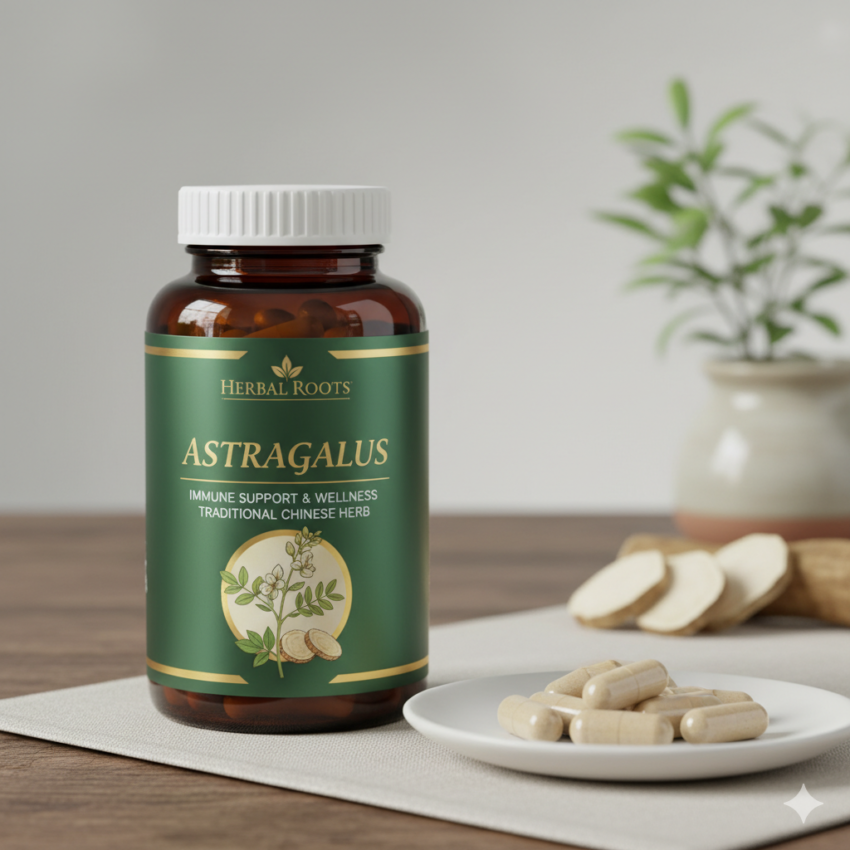Astragalus and Gout:
There is some emerging research suggesting that astragalus may have potential benefits for gout, primarily due to its anti-inflammatory effects and possible influence on uric acid levels:
- Anti-inflammatory: Studies, including some on rats with induced gout, have indicated that compounds in astragalus (like flavonoids and saponins) may help reduce inflammation and pain associated with acute gouty arthritis. This is thought to be mediated by decreasing levels of inflammatory mediators like PGE2.
- Uric Acid Reduction (Potential): Some research suggests that astragalus might help reduce uric acid levels. One study hypothesized it could treat acute gouty arthritis by reducing levels of uric acid (UA) and PGE2. This aligns with the idea that certain compounds in astragalus may inhibit xanthine oxidoreductase (an enzyme involved in uric acid production) and control uric acid transporters.
Important Considerations and Cautions:
While these findings are promising, it’s crucial to understand:
- Limited Human Research: Much of the research on astragalus and gout has been in animal models or is preliminary. More robust human clinical trials are needed to confirm its efficacy and determine appropriate dosages for gout management.
- Not a Replacement for Medical Treatment: Astragalus should not be used as a sole treatment for gout or as a replacement for prescribed medications (like allopurinol, febuxostat, colchicine, or NSAIDs). Gout is a serious condition that requires proper medical diagnosis and management.
- Side Effects: While generally considered safe for most people at recommended doses, astragalus can have side effects, including:
- Mild gastrointestinal upset (nausea, diarrhea)
- Rashes, itching
- Headache, fatigue, runny nose
- Drug Interactions: Astragalus can interact with certain medications:
- Immunosuppressants: Astragalus is known for its immune-boosting properties. Therefore, it might interfere with medications that suppress the immune system (e.g., for organ transplant recipients or autoimmune diseases), potentially making them less effective.
- Anticoagulants (Blood Thinners): Astragalus may have anticoagulant properties, increasing the risk of bleeding if taken with blood thinners like warfarin.
- Blood Pressure Medications: It might lower blood pressure, potentially causing dangerously low blood pressure if combined with other blood pressure-lowering drugs.
- Diuretics: Astragalus may increase the effects of diuretics (water pills).
- Lithium: It might make it harder for the body to get rid of lithium, potentially leading to dangerous levels.
- Specific Populations: Astragalus is generally advised against for:
- Pregnant or breastfeeding women
- Individuals with autoimmune diseases (e.g., lupus, rheumatoid arthritis, multiple sclerosis) due to its immune-modulating effects.
- People who have undergone organ transplants.
- Individuals with pre-existing kidney or liver problems should exercise caution and consult their doctor.
Conclusion:
Astragalus shows some potential as an adjunct therapy for gout, particularly for its anti-inflammatory effects and possible uric acid-lowering properties. However, the evidence is still largely preliminary.
If you have gout and are considering taking astragalus, it is absolutely essential to speak with your doctor first. They can assess whether it’s safe for you, considering your overall health, other medications you’re taking, and the severity of your gout. They can also advise on appropriate dosages and monitor for any potential side effects or interactions.
